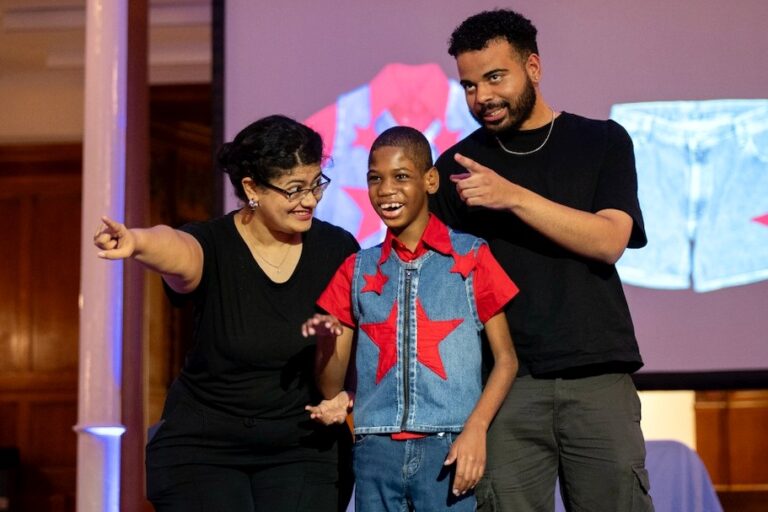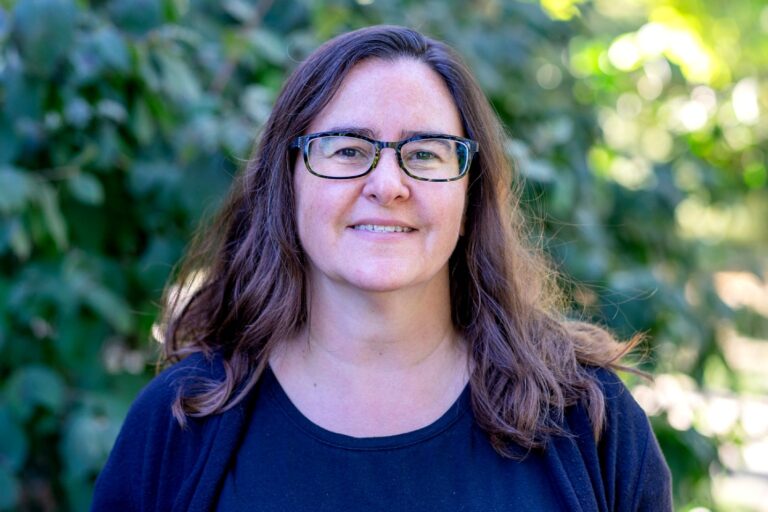For the first time ever, the Global Digital Humanities Symposium at Michigan State University will be held as a combination of virtual and in-person events. The 2023 symposium will take place as a synchronous virtual event March 13-15 and as an in-person event on March 17 at the MSU Main Library.
“We are thrilled to have the symposium continue the globally oriented and inclusive practices that we have embraced since the pivot to virtual in 2020 while incorporating into the event in-person activities that encourage people to come together to build community across institutional and disciplinary backgrounds,” said Kristen Mapes, Assistant Director of Digital Humanities in MSU’s College of Arts & Letters and Chair of the Global Digital Humanities Symposium Planning Committee. “This year is an experiment in balancing the needs of a virtual and an in-person event while remaining true to our values.”

The 8th annual Global Digital Humanities Symposium, hosted by Digital Humanities at MSU, is free and open to the public and will feature speakers from all around the world including Argentina, Canada, China, India, New Zealand, the Netherlands, Nigeria, Switzerland, the United Kingdom, and United States, as well as several speakers from MSU. Multilingual translation also will be available in English, Spanish, and Mandarin Chinese.
This year’s symposium will address how the interdisciplinary practices of digital humanities can relate to global, indigenous, and/or underrepresented groups and topics. See the Global Digital Humanities Symposium 2023 website for a complete schedule of events.
“This year is an experiment in balancing the needs of a virtual and an in-person event while remaining true to our values.”
Kristen Mapes, Chair of Global Digital Humanities Symposium Planning Committee
“We are only able to do this work due to the efforts of our planning committee, which includes people from around the world as well as from MSU, and through the sponsorship support of DH@MSU, the Libraries, and H-Net,” Mapes said. “As we look toward our 10th anniversary in a couple of years, we hope that this experience sets the stage for the event’s growth.”
To attend the virtual or in-person events, registration is required. To register, complete and submit a 2023 Registration Form. The deadline for registration is Monday, March 6.
For more information on the symposium, visit the Global Digital Humanities 2023 website.
Keynote Speakers
This year’s keynote speakers are Elaine Gan, Roopika Risam, Thenmozhi Soundararajan, and João Beira. The following gives some information on each of these speakers:
Elaine Gan is an artist-theorist and Professor at Wesleyan University. She is Co-Editor of an interdisciplinary anthology, Arts of Living on a Damaged Planet: Ghosts and Monsters of the Anthropocene, and directs Multispecies Worldbuilding Lab, an experimental podcast about climate change.
Gan is interested in mapping worlds otherwise. Her transdisciplinary practice combines methods from art, science, and digital/environmental humanities to study the timing and temporal coordination of more-than-human socialities. Through writing, drawing, interactive media, and installation, she explores historical materialisms and temporal coordinations that emerge between species, machines, and landscapes, with a particular interest in planets and fungi.
Gan will deliver her keynote address virtually on Monday, March 13, from 7:45-8:45 p.m.
Roopika Risam is an Associate Professor of Film and Media Studies and of Comparative Literature at Dartmouth College, where she is part of the Digital Humanities and Social Engagement Cluster. Her research interests lie at the intersections of postcolonial and African diaspora studies, humanities knowledge infrastructures, and digital humanities.
Risam’s work has been supported by more than $4.3 million in grants from the Mellon Foundation, National Endowment for the Humanities, Institute of Museum and Library Services, Mass Humanities, and the Massachusetts Department of Higher Education.
Risam will provide a response to the keynote presentations given by Gan and Soudararajan and will moderate a discussion among the virtual keynote presenters on Wednesday, March 15, from 11:45 a.m.-12:45 p.m.
Thenmozhi Soundararajan is a Dalit American commentator on religion, race, caste, gender, technology, and justice. She is the co-founder and Executive Director of Equality Labs, which is the largest Dalit civil rights organization working to empower caste-oppressed people all around the world. She also is the author of The Trauma of Caste: A Dalit Feminist Meditation on Survivorship, Healing, and Abolition.
Soundararajan’s work has been recognized by the U.S. Congress, Smithsonian Asian Pacific American Center, Producers Guild of America Diversity Program, Museum of Contemporary Art, The Sorbonne, Source Magazine, Utne Reader, National Humanities Center, National Science Foundation, Ford Foundation, and Alfred P. Sloan Foundation.
She will deliver her keynote address virtually on Wednesday, March 15, from 9-10 a.m.
João Beira is a visual artist, art director, and researcher working on immersive and augmented visualizations. He combines artistic activity with academic and scientific research using software development for interactive and generative visualizations. He also is the founder and creative director of Datagrama visuals, a collective of international artist-coders that create immersive environments and perform live visuals.
Beira’s experimental work and research with neural networks and generative software for visualizations with projection design have created a very defined and unique body of work. In the last decade, Biera and Datagrama have collaborated with artists such as Tipper and presented art installations and live performances in renowned international art festivals and events such as SXSW and Burning Man. Since 2016, Biera has been in charge of video art direction for Boom Festival.
Beira will deliver his keynote address in person on Friday, March 17, from 9:45-10:45 a.m.


